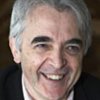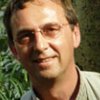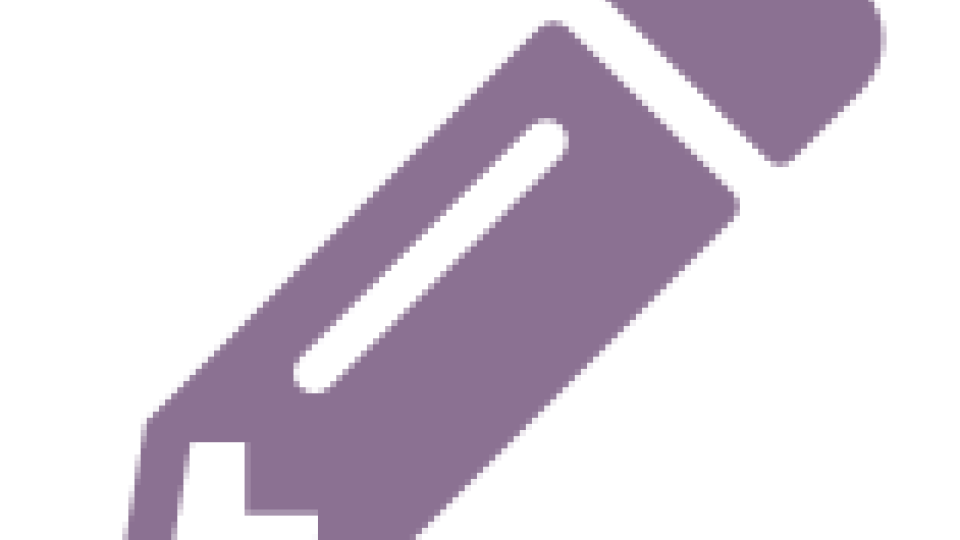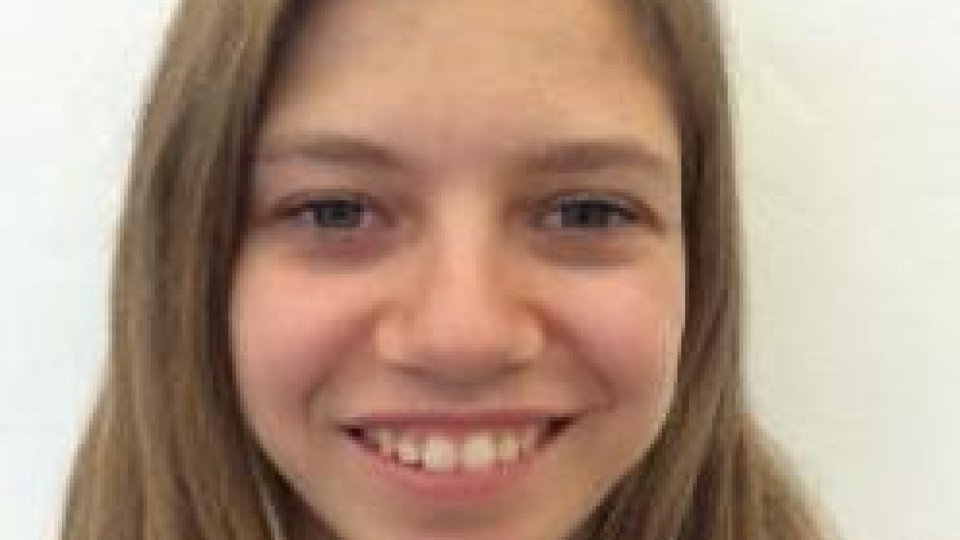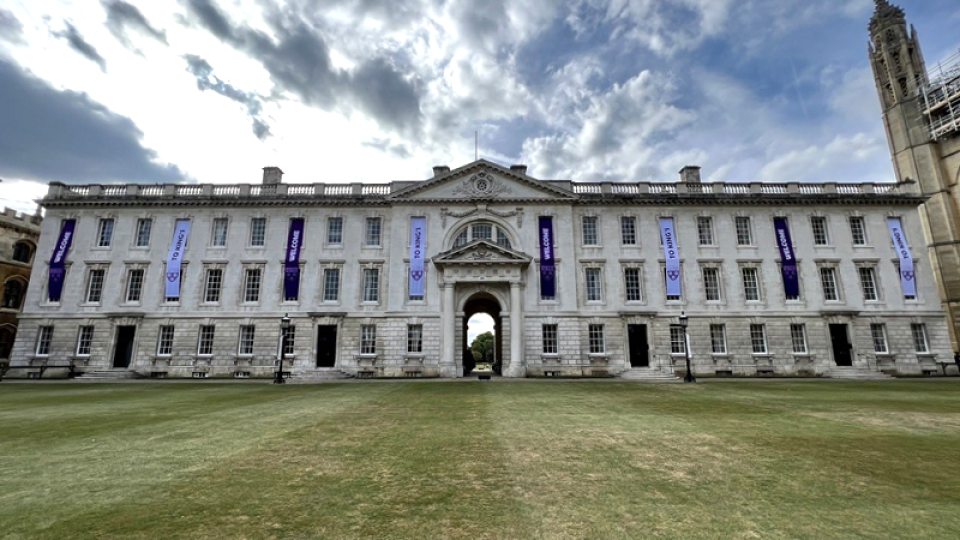Linguistics is the systematic study of human language. Superficially, there’s huge variation among the world’s languages, and linguists not only describe the diverse characteristics of individual languages but also explore properties which all languages share and which offer insight into the human mind. The study of linguistics draws on methods and knowledge from a wide range of disciplines. For instance, the study of meaning draws on philosophy, the analysis of the speech signal uses methods from physics and engineering, and the study of language acquisition draws on psychology.
Course Structure
The Linguistics course is divided into a one-year Part I and a two-year Part II. Part I, in which you follow four lecture series, provides a foundation across a wide range of linguistics taught within the Department. Part II allows you to specialise in the areas which particularly interest you, and there is a wide choice of lectures taught within and beyond the Department, including the linguistics of particular languages. Your third year includes an element of individual research as you write a dissertation on a topic of your choice.
Linguistics papers typically consist of sixteen hours of lectures spread over two terms, augmented by a revision lecture in Easter Term and eight hours of supervisions (three in the autumn (Michaelmas) term, four in the winter (Lent) term, and one in the spring (Easter) term). Most students are supervised in groups of two students; with supervisions involving a mix of working through data sets, discussing assigned 1500-word essays, and pursuing points of interest or confusion from the lectures.
Linguistics gives you a host of valuable intellectual skills, including analytic reasoning and argumentation, and learning how to study language scientifically. This means making insightful observations, formulating and testing clear hypotheses, making arguments and drawing conclusions, and communicating findings to a wider community. Linguistics graduates are well equipped for a wide range of career trajectories. Some go on to postgraduate studies in areas such as anthropology, biology, cognitive science, computer science, linguistics, mathematics, music, medicine, philosophy, and psychology. Many find fruitful employment in the real world, in areas as diverse as acting, composing, writing and publishing, programming (speech recognition, speech synthesis, search engines, artificial intelligence), interpreting and translating, espionage, forensics, speech therapy, education (school teaching, English as a Second Language, foreign language teaching, and so on), and standardised testing, as well as such generally popular careers as law, banking, the civil service, and management consultancy.
Linguistics at Cambridge
Undergraduate students and staff talk about studying Linguistics at the University of Cambridge. To find out more about this course, see www.undergraduate.study.cam.ac.uk While every effort has been made to ensure that the information contained in this video is accurate at the time it was uploaded, changes are likely to occur. It is therefore very important that you check the University and College websites for any updates before you apply for the course by visiting…
Linguistics at King's
King’s was the first Cambridge college to appoint a Fellow in Linguistics, and has produced a long string of graduates who went on to become world-famous professors of linguistics, such as Daniel Jones, founder of the International Phonetic Association and author of the classic English Pronouncing Dictionary; Peter Trudgill, who conducted a pioneering sociolinguistic study of Norwich; Bernard Comrie, the world’s leading expert on language typology and universals; Edward Keenan; Caroline Heycock; and Nigel Fabb.
King's houses the largest community of undergraduate and postgraduate linguists of any Cambridge college, as well as speakers of a wide variety of languages. We typically have about 10-15 students in linguistics at any given time, with current students pursuing research ranging from experimental pragmatics to tonal systems in Tibetan dialects.
Fellows at King's in Linguistics:
Applying for Linguistics at King’s
King’s admits between one and two undergraduates to study Linguistics in each year, though we have no firm subject quotas. We welcome applicants who look able to meet our entrance requirements from all kinds of schools all over the world.
Subject Requirements
As Linguistics spans all of the major disciplines, with significant branches in the sciences, humanities, and social sciences, we don't ask for any specific subjects to apply to Linguistics. Strong applications might include, but do not specifically require, any of the following: • Languages (ancient or modern) • Mathematics, Physics, Chemistry, or Biology • English language
Within King’s, we are looking for students who are fascinated by human language and linguistic structure: how it develops in children and across generations; how it varies across dialect and language boundaries; how and where it is processed in the mind. It is important to move beyond ‘I’ve always loved languages’ and to be able to think and talk analytically and creatively about linguistic questions (such as ‘in what linguistic positions does British English delete and insert r?’ or ‘why does the double plural “mice traps” work, but “rats traps” doesn’t?’).
Written Work
You will not be asked to submit any written work as part of your application to King's.
Written Assessment
All applicants for Linguistics are required to take a written assessment if shortlisted for interview. You will not need to register in advance for this assessment and the Colleges will provide details directly to you.
Interviews
We interview most (but not necessarily all) candidates who apply for Linguistics at King's. Students who are invited for interview in Linguistics may be called upon to apply their analytical skills to data from an unknown language during the course of the interview.
Student Perspectives
After her first year at King's, Karolina wrote about her experiences of studying Linguistics, including what attracted her to the course, the transition from school, her workload, what it is like having supervisions, the social life, and the application process. This is well worth reading to get a sense of what studying Linguistics at King's is really like.
Reading, Resources and Events
There are no particular books that Linguistics applicants are required to read but here are some recommendations:
David Crystal, The Cambridge encyclopedia of language (Cambridge, 1997)
David Crystal, How Language Works: How Babies Babble, Words Change Meaning and Languages Live or Die (London, 2007).
Steven Pinker, The Language Instinct: The New Science of Language and Mind (London, 2003).
Events which may be of interest in the year before you apply (year 12 in the UK) include the MML & Linguistics Faculty Open Day, Oxford and Cambridge Student Conferences, CU Masterclasses, and King's Open Days. Students from backgrounds where there is little tradition of entry to Higher Education might like to think about applying for the Sutton Trust Summer Schools or the CUSU Shadowing Scheme.
